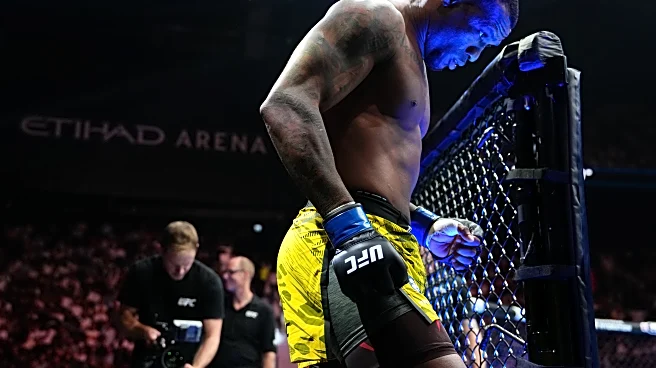What's Happening?
JPMorgan Chase CEO Jamie Dimon has expressed concerns over President Trump's executive order introducing a $100,000 fee for H-1B visas. These visas allow U.S. employers to hire non-U.S. workers for specialized roles, particularly in the tech sector. Dimon, while supporting merit-based immigration, believes the fee will face resistance from U.S. companies that depend on foreign expertise. JPMorgan Chase, a leading sponsor of H-1B visas, had 1,990 certified filings in fiscal 2024. Dimon argues that the fee could deter foreign students from studying in the U.S., impacting their chances of securing jobs post-graduation. He emphasizes the importance of maintaining the U.S. as an attractive destination for global talent, noting the historical significance of immigration to the nation's strength.
Why It's Important?
The proposed H-1B visa fee could significantly impact U.S. companies, particularly those in the STEM fields, by limiting access to global talent. JPMorgan Chase, along with other major corporations, relies on these visas to fill critical positions and maintain competitive advantage. The fee may lead to fewer work authorizations, potentially affecting up to 5,500 positions monthly. This could result in companies seeking alternative methods to hire foreign talent, possibly increasing offshoring of high-skilled jobs. The broader implications include a potential decline in the attractiveness of the U.S. for foreign students, which could affect the country's educational institutions and future workforce.
What's Next?
JPMorgan Chase plans to engage with stakeholders and policymakers to address the concerns raised by the executive order. The bank's economists have warned of the labor market impact, suggesting that constraints like the H-1B visa fee could lead to unintended consequences, such as increased offshoring. The U.S. Citizenship and Immigration Services has already reached its H-1B cap for fiscal 2026, indicating that immediate labor market effects may be limited. However, the long-term impact on U.S. companies' ability to attract and retain top global talent remains a critical issue.
Beyond the Headlines
The introduction of the H-1B visa fee raises ethical and cultural questions about the U.S.'s stance on immigration and its role as a global leader in innovation. The fee could challenge the country's historical identity as a nation built by immigrants, potentially altering its cultural landscape. Additionally, the policy may influence international perceptions of the U.S. as a welcoming environment for skilled professionals, affecting its global reputation and economic competitiveness.









